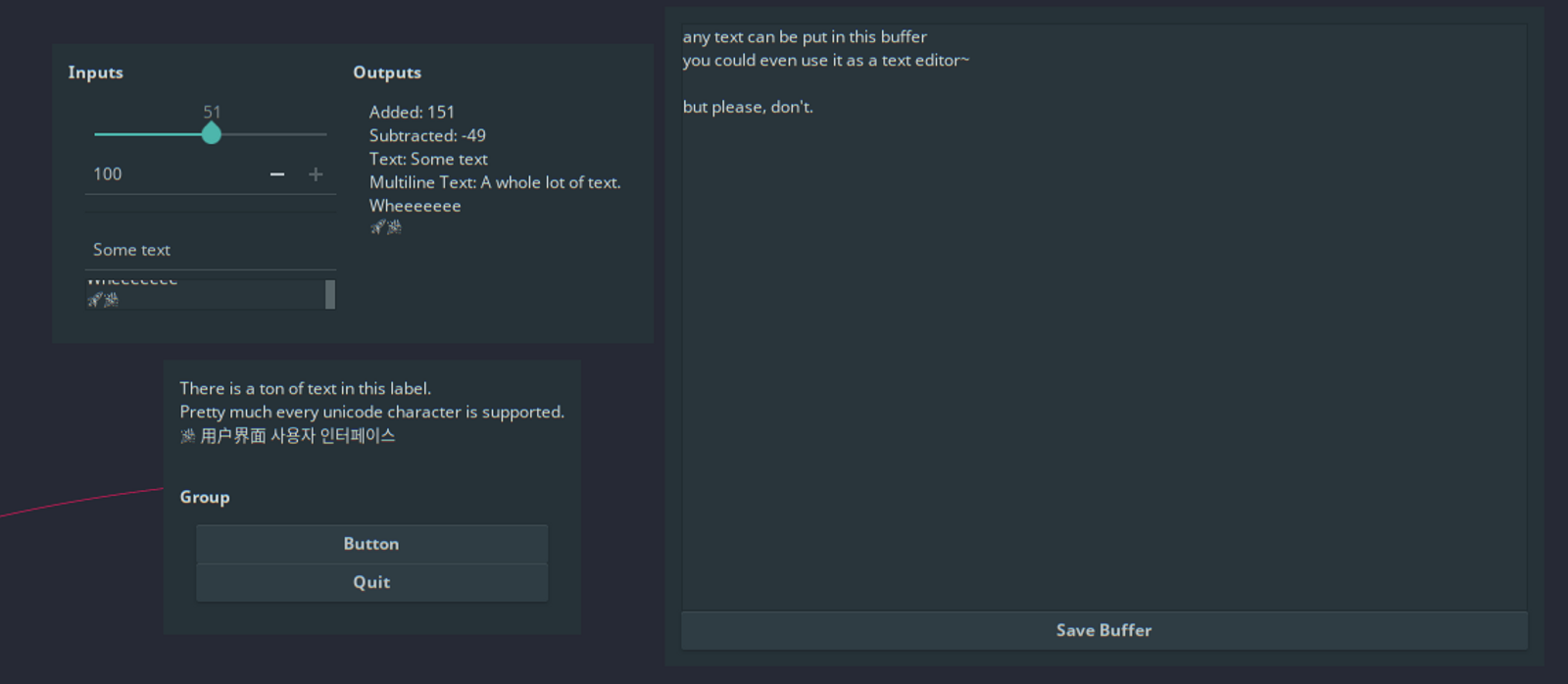iui is a simple, small, easy to distribute GUI library, a Rusty user interface library that binds to platform native APIs.
These are work-in-progress bindings to the minimalistic native UI library [libui][libui] via the ui-sys bindings crate.
Add iui to your project with:
iui = "0.2"iui is the safe Rust wrapper, to be used by most users.
ui is the old version of the safe wrapper. Don't use this.
ui-sys is the raw unsafe bindings to the libui C code. Requires cmake so it can build libui.
libui is included as a submodule. You will need CMake to build libui itself.
Based on work by @pcwalton. Licensed MIT.
extern crate iui;
use iui::prelude::*;
use iui::controls::{Label, Button, VerticalBox, Group};
fn main() {
// Initialize the UI library
let ui = UI::init().expect("Couldn't initialize UI library");
// Create a window into which controls can be placed
let mut win = Window::new(&ui, "Test App", 200, 200, WindowType::NoMenubar);
// Create a vertical layout to hold the controls
let mut vbox = VerticalBox::new(&ui);
vbox.set_padded(&ui, true);
let mut group_vbox = VerticalBox::new(&ui);
let mut group = Group::new(&ui, "Group");
// Create two buttons to place in the window
let mut button = Button::new(&ui, "Button");
button.on_clicked(&ui, {
let ui = ui.clone();
move |btn| {
btn.set_text(&ui, "Clicked!");
}
});
let mut quit_button = Button::new(&ui, "Quit");
quit_button.on_clicked(&ui, {
let ui = ui.clone();
move |_| {
ui.quit();
}
});
// Create a new label. Note that labels don't auto-wrap!
let mut label_text = String::new();
label_text.push_str("There is a ton of text in this label.\n");
label_text.push_str("Pretty much every unicode character is supported.\n");
label_text.push_str("🎉 用户界面 사용자 인터페이스");
let label = Label::new(&ui, &label_text);
vbox.append(&ui, label, LayoutStrategy::Stretchy);
group_vbox.append(&ui, button, LayoutStrategy::Compact);
group_vbox.append(&ui, quit_button, LayoutStrategy::Compact);
group.set_child(&ui, group_vbox);
vbox.append(&ui, group, LayoutStrategy::Compact);
// Actually put the button in the window
win.set_child(&ui, vbox);
// Show the window
win.show(&ui);
// Run the application
ui.main();
}ui-sys includes libui as a sub-module and allows it to be built on-the-fly with the
default features fetch and build. With fetch disabled, it will simply build the
existing sources without updating them, and with build disabled it will build nothing,
assuming either a system or local (in ./lib/) version of libui is available.
Note that most of the time, building libui on the fly is what you want. It does however
require a copy of cmake, essential build tools, et cetera.



